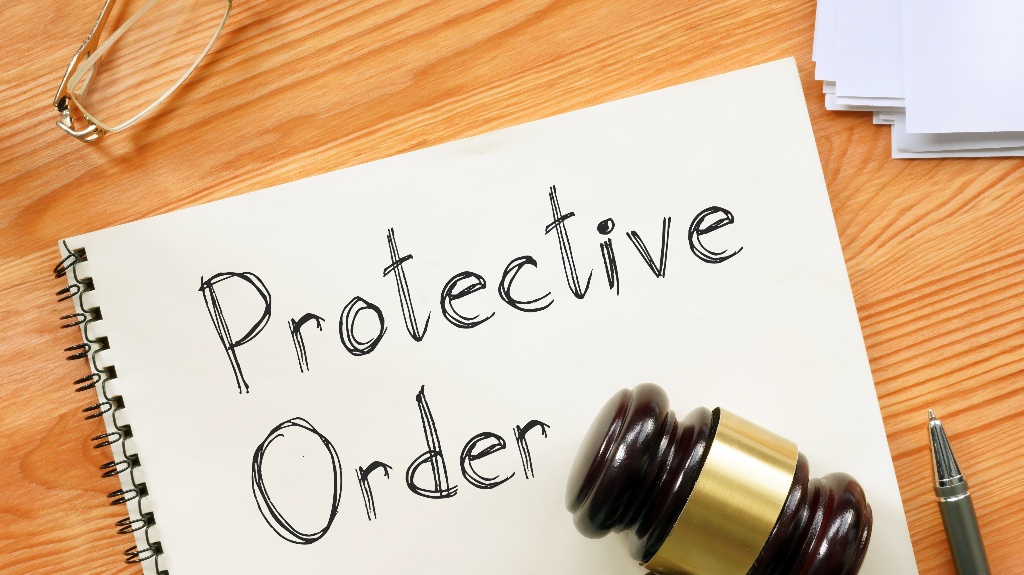Civil Protection Orders (CPOs) play a very important role in protecting victims of domestic violence, stalking, or threats in Ohio. The purpose of such an order is to restrict contact between an abuser and a victim, remove abusers from shared accommodation, and provide a safe environment for the victims and their families.
However, many people wonder exactly how long a CPO lasts. In this article, we will look at what Ohio law says about the duration of a CPO, when it can be extended, and what happens when it eventually expires.
What Is a Civil Protection Order (CPO)?
The main purpose of a Civil Protection Order is to protect someone from acts of violence or threats. Under Ohio Revised Code (ORC) §3113.31, a CPO is capable of ordering the respondent (the alleged abuser) to:
- Keep a distance from the petitioner (the victim) – essentially, to stay away from them.
- Leave a shared home.
- Avoid contact – be it in person, over the phone, or online.
- Surrender firearms.
CPOs are not related to criminal charges – they are civil court orders, and as such, they provide immediate protection and can exist even if a criminal case hasn’t been filed.
Types of Protection Orders in Ohio
Under Ohio law, several types of protection orders are recognized, and they are dependent on the relationship and type of threat involved. For example:
- Domestic Violence Civil Protection Order (DVCPO): These are designed for victims of domestic violence involving family or other members of the household, such as spouses, partners, relatives, and co-parents.
- Juvenile Civil Protection Order (JCPO): These are relevant when a minor is involved and are issued by juvenile court.
- Stalking or Sexually Oriented Offense Protection Order (SSOOPO): These are in place for victims of stalking, harassment, or sexual offenses without a domestic relationship involved.
- Temporary Protection Order (TPO): These are issued in criminal cases and are designed to protect victims while the case is pending – separate from CPO.
Each type of protection order has different rules about how long it lasts.
Duration of a Civil Protection Order in Ohio
According to ORC §3113.31(E)(3)(a), a Domestic Violence Civil Protection Order (CPO) can last for up to five years from the date of issuing. Similarly, a Stalking or Sexually Oriented Offense Protection Order can also last for up to five years, according to ORC §2903.214(E)(2)(a).
The length of a CPO is decided by the court, and is based on the facts of the case, as well as the severity of the ongoing risk to the victim. Once a CPO is put in place, both parties are obliged to comply with its terms, and violations could lead to a criminal penalty.
Importantly, some CPOs will have specific end dates or conditions under which they may expire, whilst others will remain valid until a certain amount of time has passed or until the court modifies them.
Extending or Renewing a Protection Order
The petitioner can ask the court to either extend or renew a CPO before it expires. Ohio courts can extend a CPO for an additional five-year period, provided the threat or risk to the victim still exists (ORC §3113.31(E)(3)(c)).
To renew an order, the petitioner will have to file a motion before it expires. After that, the court will hold a hearing to decide if continuing the protection is justified. In some cases, the court may modify or terminate the order early – this happens only if both parties agree, or if the circumstances of the case have changed significantly.
Consequences of Violating a CPO

A violation of a CPO is regarded as a criminal offense under ORC §2919.27. Violating for the first time is classed as a first-degree misdemeanor, and it could lead to up to 180 days in jail, as well as fines up to $1000.
Repeat violations can escalate to being charged as felonies. It’s important to know that even accidental or minor contact with the victim, such as via text, can be seen as a violation, so complying strictly with the CPO is crucial.
If an order has been violated, victims should contact law enforcement immediately. As for the respondent, they should seek legal guidance before they respond to allegations of violation.
Why Legal Help Matters
Experienced legal guidance is vital, whether you’re the one seeking protection, or the one responding to a CPO. An Ohio civil protection order attorney can help you in filing or renewing a CPO correctly, offer you representation in hearings to ensure your rights are protected, and advise you on how to comply with an order or put in modification requests.
If you or a loved one need help in obtaining, renewing, or defending against a Civil Protection Order in Ohio, don’t hesitate to contact David Shook today.
Our seasoned attorneys will guide you through the process, explain your rights and options to you, and help you achieve the best possible outcome in your situation. Let us help you – you don’t have to navigate this legal maze alone.



